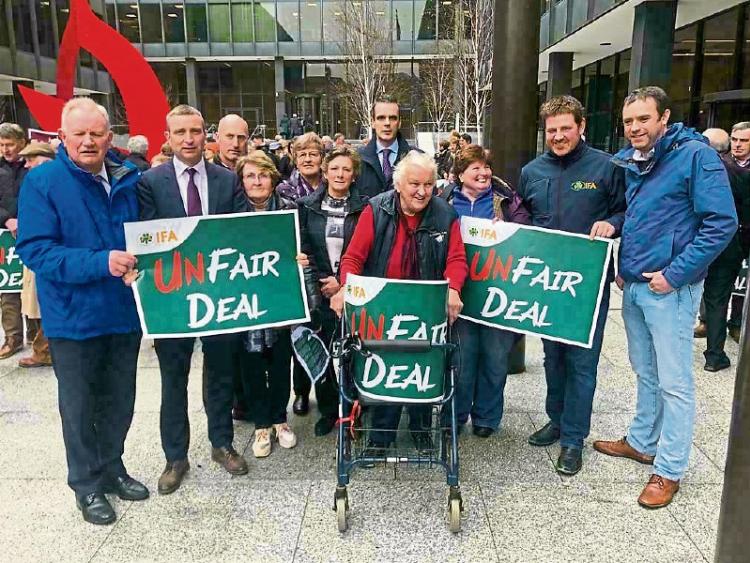On April 16, over 300 Irish farmers protested outside the Department of Health in Dublin, Ireland, over the delayed implementation of the changes made in the ‘Fair Deal’ nursing home scheme. Farmers from all over the country joined the demonstration, which was organized by the Irish Farmers’ Association (IFA). The protesters demanded that the changes that were introduced to the scheme in 2018 be implemented immediately as well as retrospectively.
The Fair Deal scheme allows the elderly in Ireland to contribute towards their own care in a private, public or voluntary nursing home, while the state pays the balance. The Health Service Executive (HSE) conducts a financial assessment of the applicants’ income and assets to determine how much they have to contribute in their cost of care. The more assets and income one has, the higher the percentage that they are required to contribute.
The applicant’s primary residence is included in the financial assessment but it is subject to a “three-year cap”. After three years, its value is no longer included to determine the applicant’s contribution, which essentially brings down the total amount they would have to pay. In July 2018, the government introduced a policy change that extended the cap to farms and family businesses.
However, nine months later, the farmers are yet to reap the benefits from this change. Without the 2018 revision, there is no cap for farms and family businesses, except in cases where the applicants with such assets suffer a sudden illness or disability necessitating long-term residential care.
Ongoing delays have become a cause of anxiety for the farmers who rely on financial assistance from the scheme to care for their elderly. Costs of care for the elderly have put many farmers in massive debt, with some families paying as much as €1,000 (USD 1,124) a week in fees.
In many cases, families have been forced to sell off parts of their land to eke out the funds for the nursing home. According to the IFA, this has also created a problem for succession because the successors are now reluctant to inherit farms with debt.
Joe Caroll, one of the farmers who participated in the protests, said that he had to pay €20,000 (USD 22,475) a year in nursing home bills for his wife who was diagnosed with multiple sclerosis in 2013. He fears losing all his reserve funds and not being able to save anything for his children. “I was saving my whole life on the farm and for the family. There was not that much savings and it is just dwindling away and now there may be no farm left either,” Joe told the Irish Independent.
Joe Healy, president of the IFA, said that the government had “abandoned” farm families by failing to implement the three-year cap on farm assets. “When Minister [Minister for Mental Health and Older People, Jim] Daly announced last July that he had cabinet approval to introduce a cap and that he would be progressing the matter in the Oireachtas in the autumn session, we thought we had reached the finish line. Unfortunately, that was not the case and we find ourselves here today,” he said.
In a statement, the Department of Health said that the policy change had been approved by the government but the legal details around it were still being worked out. Daly said that “the focus on Brexit” has had an impact on the legal counsel available to them and had, thus, slowed down the implementation of the scheme.





